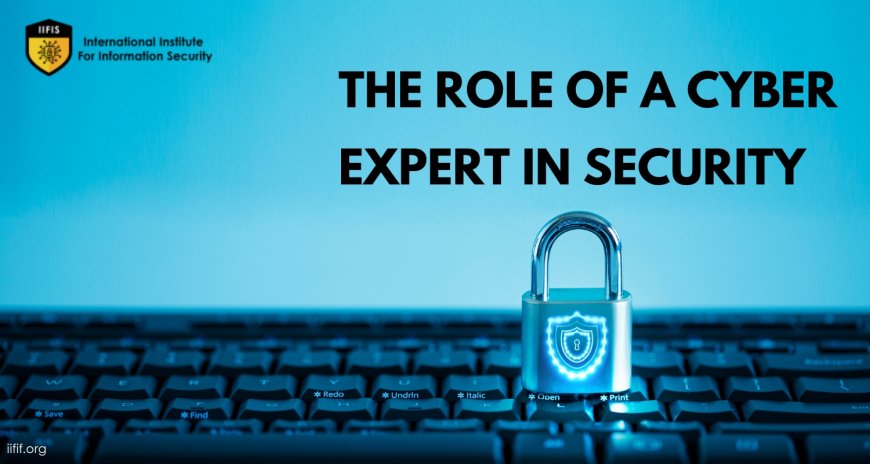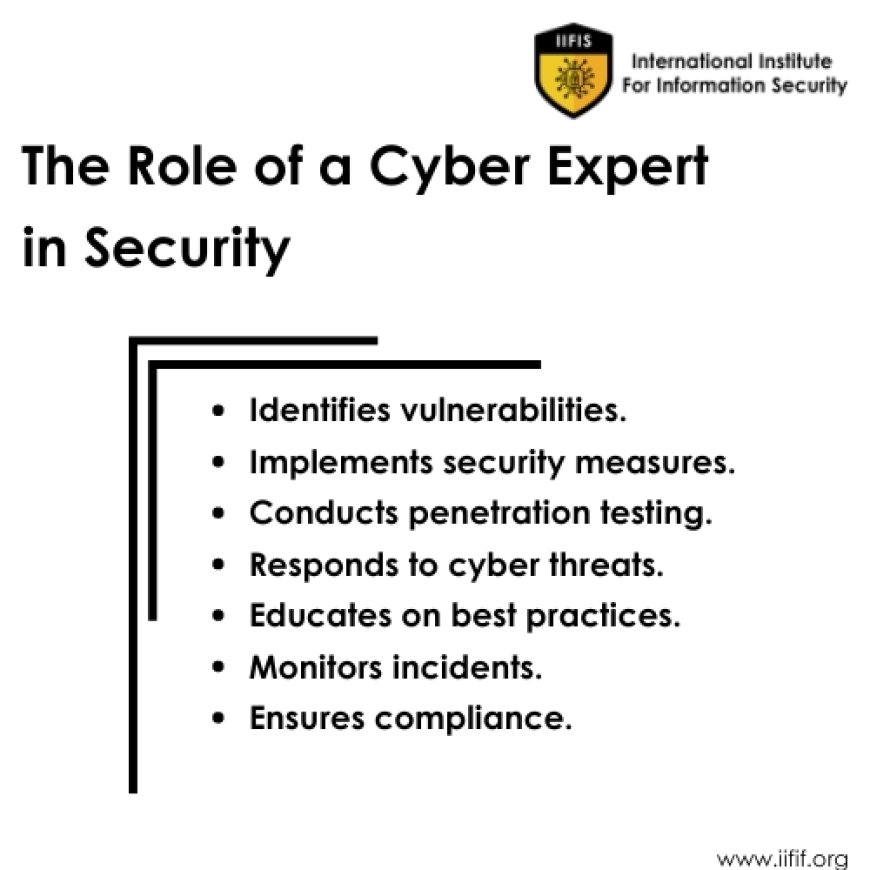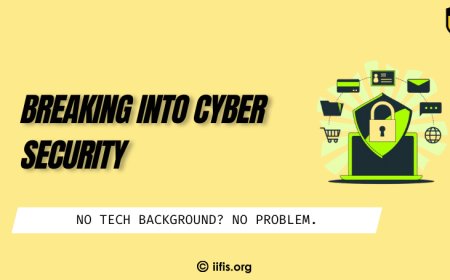The Role of a Cyber Expert in Security
Explore the crucial role of a cyber expert in security, their skills in safeguarding data, and strategies against cyber threats

A cyber Expert plays a crucial role in protecting sensitive information and systems from constantly changing threats. As businesses rely more on digital systems, the demand for skilled professionals with Cyber Security Certifications and Information Security Certifications is higher than ever. A Cyber Expert is trained to find weaknesses in different areas, using Network Security Certification Programs to strengthen networks and Application Security Certification methods to secure software. They don't just react to threats; they also use proactive strategies to predict and prevent potential breaches.
These experts understand the details of information security. They create strong security bases that meet industry standards and legal requirements. Their job isn't just about defense; it's also about teaching people the best ways to stay safe and encouraging a cautious attitude toward cyber threats. The role of a Cyber Expert is more than just technical skill. It's about protecting digital assets, keeping trust intact, and ensuring things keep running smoothly in our increasingly connected world. As cyber threats grow, so does the importance of these experts in safeguarding our digital future.
Understanding the Role of a Cyber Expert in Security
Cyber Expert plays a crucial role in protecting sensitive information and infrastructure from cyber threats. They are also known as information security professionals and are essential in organizations for setting up strong security measures. These experts often specialize in areas like penetration testing, where they simulate cyberattacks to find weaknesses. A certified penetration tester has the skills to assess and improve defenses against potential breaches. Depending on their experience and expertise, Cyber Experts may hold titles such as cybersecurity associate or certified cyber security manager.
Their main tasks include monitoring networks for suspicious activities, investigating breaches through forensic analysis, and teaching employees about security best practices. Essentially, a Cyber Expert is the first line of defense against cyber threats, ensuring that confidential data stays safe and operations continue smoothly. As our reliance on digital technology grows, the role of a Cyber Expert becomes more crucial in protecting sensitive data and maintaining secure organizational systems.
Challenges Organizations Face in Maintaining Strong Cybersecurity
Keeping strong cybersecurity is harder than ever. Organizations encounter several hurdles in protecting their sensitive data and systems from evolving cyber threats. Here are some main issues they face:
1. Advanced Threats: Cybercriminals are becoming more advanced. They use tricky methods like ransomware and phishing attacks that can get around traditional security measures.
2. Limited Resources: Many organizations struggle with not having enough money and resources for cybersecurity. This makes it hard for them to create good defense plans.
3. Not Enough Experts: Finding qualified cybersecurity professionals is hard. There aren't enough people with the right skills, so it's tough for organizations to hire and keep good staff.
4. Complex Technology: New technology changes fast. This makes it hard to use and manage different security solutions effectively.
5. Meeting Rules: Following rules about cybersecurity adds another problem. Organizations have to follow lots of laws and rules to protect data.
To tackle these problems, organizations need to act early. They should invest in good cybersecurity tools, keep training their staff, and work with Cyber Experts to fight new threats. By making cybersecurity a priority, organizations can lower risks and keep their digital stuff safe.

What does a Cyber Expert do to improve security?
1. Finding Weaknesses: Cyber experts are crucial for finding weaknesses in computer systems, networks, and apps that hackers could use. They know a lot about cyber threats and can find and fix problems before they cause trouble.
2. Using Better Security: Cyber experts use their knowledge to set up better security, like firewalls, systems to detect break-ins (called IDS), and ways to scramble data so only the right people can read it. These steps help make sure digital systems are safe from attacks.
3. Watching and Acting: Cyber experts watch computer networks and systems all the time. They look at security logs, check for anything strange happening, and move fast if there's a problem to stop it and prevent more attacks.
4. Teaching and Training: Besides fixing technical problems, cyber experts teach everyone in a company how to be safe online. They give classes and make sure everyone knows the best ways to keep information safe. This helps build a culture where security is a big deal.
5. Giving Advice: Cyber experts also advise leaders about security rules, what laws a company has to follow, and new threats they need to worry about. Their advice helps keep companies safe from bad guys.
6. Handling Problems: If there's a cyber attack, cyber experts lead the effort to fix it. They work with teams inside and outside the company, look at what went wrong, and make plans to get things back to normal and stop it from happening again.
7. Learning All the Time: Because cyber threats are always changing, cyber experts are always learning new things. They study new attacks, ways to stop them, and any new laws about security. This helps them keep companies safe from hackers.
These points show how important cyber experts are for keeping digital information safe and making sure companies can keep working without problems.
The Crucial Role of Cyber Experts in Strengthening Security
Cyber experts play a crucial role in ensuring strong security across various sectors. Here’s how cyber experts contribute to making security stronger:
1. Assessing and Reducing Risks:
-
Cyber experts specialize in identifying possible risks to digital systems and networks. They carefully check for weaknesses and create plans to reduce these risks. By staying ahead of possible threats, cyber experts help organizations keep their operations safe.
2. Responding to Problems:
-
When security problems happen, cyber experts are the first to respond. They quickly figure out what happened, limit its effects, and start fixing things. Their knowledge of dealing with cyber problems keeps things running smoothly and protects important data from being used by the wrong people.
3. Designing Security Plans:
-
Making strong security plans is very important today. Cyber experts create and use good security plans that fit the needs of each organization. They use advanced tools like locks on doors and alarms to keep networks and data safe from cyber threats.
4. Teaching and Making People Aware of Security:
-
Learning about security is key to keeping it strong in any organization. Cyber experts teach people about risks, how to browse the internet safely, and what to do if something goes wrong. By helping people understand security, they help them protect themselves from cyber threats.
5. Watching for Problems and Learning about Threats:
-
Cyber threats change quickly, so it’s important to keep watching for them. Cyber experts use good tools and websites to find problems and potential security breaches as soon as possible. By looking at how threats happen, they can stop them before they cause problems.
6. Following Rules and Keeping Up with Laws:
-
Every business needs to follow rules about security and laws in their industry. Cyber experts make sure businesses do these things. They check how things are going, find problems, and add new ways to keep things safe.
7. Finding Out about Cyber Crimes:
-
After a security problem, cyber experts work to find out who did it and why. They use good ways to find clues and look at digital crime scenes. Their work helps make security stronger and stop problems in the future.
cyber experts are very important for making security better against new cyber threats. By using their special skills and knowledge, they keep data safe, keep things going, and make sure businesses stay safe from cyber problems.
























